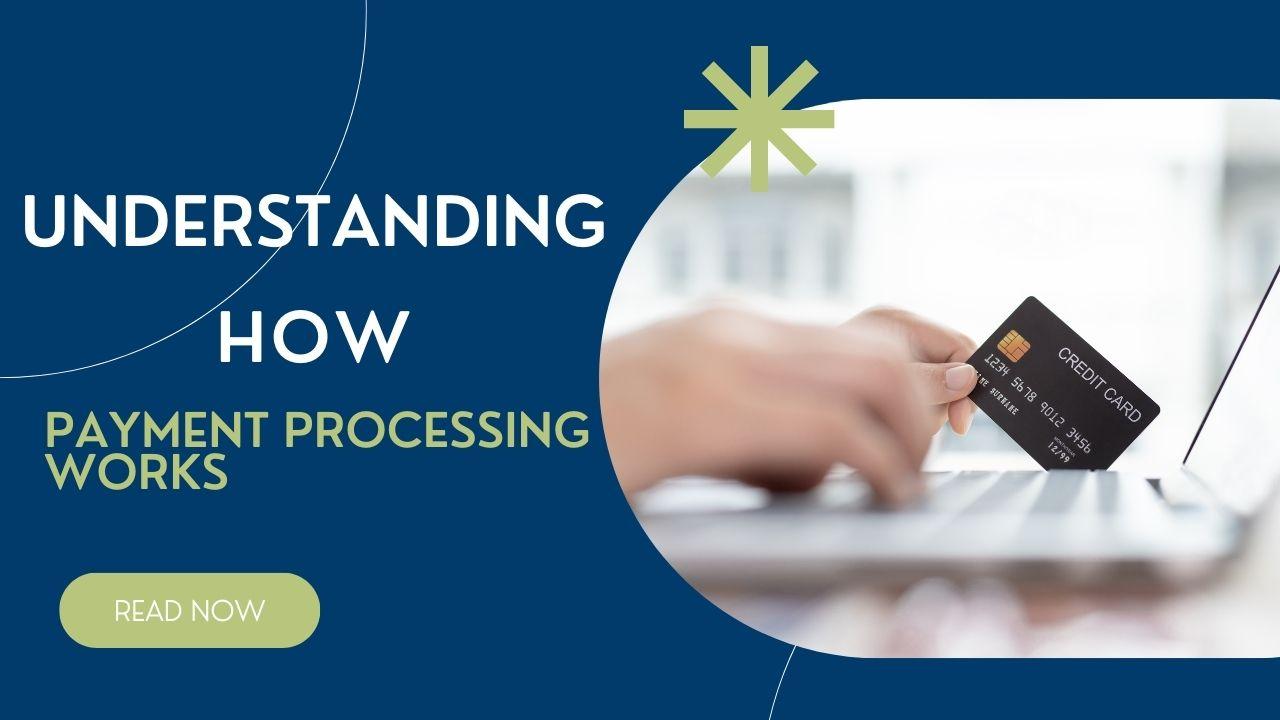
Written by FirmEU Team
Payment processing has become the backbone of our global economy in today’s fast-paced digital environment. whether you’re a customer making an online purchase or a business owner accepting money for your goods or services, understanding payment processing is important. In this post, we’ll explore almost every aspect of payment processing, Let’s go!
Payment processing is the behind-the-scenes mechanism that allows individuals and businesses to transfer money securely, whether for purchasing goods and services, transferring funds, or making investments. In essence, payment processing ensures that when you swipe your card, click “Buy Now” online, or hand over cash at a store, the money changes hands smoothly and securely.

If you are new to the concept of payment processing, follow on, as In this section, I will show you how payment processing works. While the exact process may vary depending on the payment method and parties involved, the fundamental steps involved in payment processing are as follows:
Payment processing is a multifaceted ecosystem that supports a vast range of payment methods to meet the diverse demands and preferences of consumers and businesses. Here’s a closer look at some of the most popular methods of payment:
There is a high chance that you reading this article use a credit or a debit card for transactions. Credit and debit cards are among the most widely used payment methods worldwide. It allows customers to make payments using their credit or debit cards, including Visa, MasterCard, American Express, and Discover.
Mobile payment solutions, such as Apple Pay, Google Pay, and Samsung Pay, enable customers to make payments using their smartphones or smartwatches.
Online payment gateways are critical for e-commerce companies. These platforms enable customers to make purchases on your website using various payment methods, such as credit cards and digital wallets.
Automated Clearing House (ACH) transfers and bank transfers enable customers to pay directly from their bank accounts. This method is frequently used for recurring payments, subscription services, and business-to-business transactions.
POS systems are used in physical retail locations to process payments at the point of sale. They can accept various payment methods, including cash, cards, and mobile payments.
Accepting cryptocurrencies like Bitcoin and Ethereum is an innovative way to diversify payment options. Cryptocurrencies are digital currencies that offer fast, secure, and borderless transactions.
As a business owner, one of the critical decisions you’ll make is choosing the right payment methods for your customers. The payment methods you offer can significantly impact your sales, customer satisfaction, and overall operational efficiency. To help you make informed choices kindly contact us for a free consultation.

In case you are still thinking if you need payment processing for your business, let me show you the benefits. Maybe the benefits will convince you. Here are some key reasons why payment processing matters:
Payment processing is the system that enables transactions to occur. Without it, businesses would struggle to collect payments for their products or services. It facilitates the smooth movement of funds between customers and businesses.
Offering a variety of payment methods, such as credit cards, debit cards, mobile payments, and digital wallets, increases customer convenience. Customers are more likely to finish a purchase when they can pay in their preferred method.
Payment processing allows businesses to operate on a global scale. With the ability to accept international payments, you can reach customers from different parts of the world, thereby expanding your market and revenue potential.
Providing secure, efficient, and convenient payment options can give your business a competitive edge. Customers often choose businesses that offer hassle-free payment experiences.
Efficient payment processing can increase your revenue. It lowers payment delays, and abandoned shopping carts in e-commerce, and increases repeat business. Furthermore, it enables businesses to accept diverse forms of payment, potentially raising average transaction values.
Payment processors play a crucial role in fraud detection and prevention. These processors use sophisticated algorithms to identify suspicious transactions and protect both businesses and customers from unauthorized activities. Moreover, Payment processing automates financial transactions, reducing the risk of human errors associated with manual handling of payments. Also, a secure and reliable payment process builds trust with customers. It showcases your commitment to their financial security, which is critical for maintaining a positive reputation.
Payment processors keep detailed records of all transactions, providing businesses with accurate financial data. This information is vital for accounting, taxation, and financial reporting.
Now that you know so much about payment processing and are accepting the idea for your business, you may wonder “What are the requirements for payment processing?” But firstly, let’s establish this fact: Payment processing may not always be a one-size-fits-all concept. It covers a wide range of industries and scenarios.
Each of these industries has its own unique requirements and challenges, mostly when considered high-risk. One corporate service provider company that has made it its mission to excel in the realm of payment processing is FirmEU. With our expertise and competitive pricing we’ve become a trusted partner for businesses across various industries, including high-risk sectors like adult entertainment, gambling, forex trading, and cryptocurrency.
Anyways, below, you will find some basic general requirements you should consider when implementing payment processing for your business:
Payment processing is not just a back-office function; it’s a critical aspect of your customer-facing operations. Choosing the right payment processing solutions and providers can significantly impact your business’s success, growth, and customer satisfaction. Contact us today to learn more about how you can set up yours.
Discover the full range of services we can offer with a free quote.